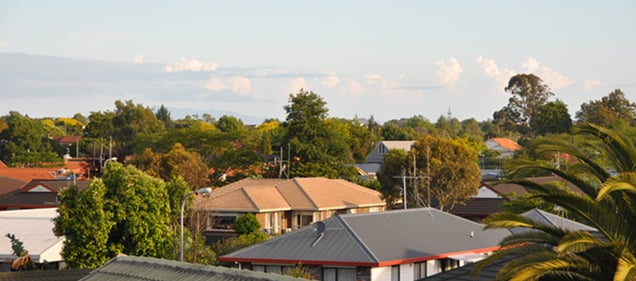BLOG
Subscribe to our newsletter
Turning your home into an investment property when you can't sell

Not everyone chooses to sell their current home when they decide to move on. Sometimes, it’s not even an option. If you’re looking to hang on to your personal home and turn it into a rental, there are a few things you should know.
Turning your home into an investment property is not uncommon and is a viable option if you can't sell. That said, there are three critical steps before you start.
1. Check that you’re financially secure
Before you make any decision, consult a financial expert to see if you’re in a financial position to buy or move without selling your old home first.
2. Consult a property manager
A property manager can evaluate your property and provide a rental appraisal—which you may need to provide to your bank. They’ll also highlight any potential issues your property might have and improvements you could make to maximise your rent yield.
3. Make sure your home meets regulations
New residential tenancy laws require all rental properties to have smoke alarms and, as of 2018, to have insulation. If your home does not meet these requirements, you cannot legally rent it out.
Why do it?
- You’re moving cities, or overseas: if you’re not willing to let go of your Waikato home just yet, opting to rent it out allows you to stay on the property ladder and keep a house in the city. This is an attractive option for many Kiwis who plan to return to their home town in the future.
- Your home doesn’t sell: for home owners who are unable to sell their homes, renting becomes the next best option to move on to your next property. It keeps the old property from becoming a cash drain and means you don’t have to sacrifice all your property goals when it doesn’t sell.
- You want to start or grow a property portfolio: if you’re looking to begin or add to a property portfolio, turning your home into a rental is one way to do it. Keep in mind that you’ll have a better chance of success if your home is in a good location and of a style that’s in high demand. In Te Kowhai/St Andrews/Queenwood, for example, there are (as of October 2017) 118 bonds for 3-bedroom houses with a median rent of $420 per week. If your home is a 3-bedroom property in this region, it’s a good indicator that you’ll find demand for it. Always check with a professional first, however.
Six things to keep in mind
1. Wear and tear
This is perhaps the biggest thing home owners need to know. As a rental, your personal home will experience more wear and tear than it otherwise would if you lived in it. Your garden will probably not look as immaculate as it once did, and your walls and floors may acquire new scuff marks. So, if you can’t shake off your emotional attachment to the property, you may be better off selling it rather than renting it.
2. Location
The location of your home can have a major impact on its rentability and how easy it is to find quality tenants. If you’re close to local amenities like schools, Waikato University, Waikato hospital or public transport routes, you have a better chance of keeping your property tenanted.
3. Maintenance
If your home is high maintenance—perhaps it has a pool, a large garden, or old appliances—know that you’ll need to keep it maintained to a reasonable condition to meet your obligations as a landlord/owner. This may involve extra ongoing costs, or costs to remedy the amount of maintenance required.
4. Family homes do best
In Hamilton, family sized homes do particularly well on the rental market. Four-bedroom houses in Hamilton fetch, on average, between $450 and $520 per week.
As for the strongest performing suburbs, Hamilton East/University, Te Kowhai/St Andrews/Queenwood, Dinsdale South/Frankton, Dinsdale North/Nawton and Flagstaff/Rototuna have recently experienced the strongest rental growth for family sized properties with three to five (or more) bedrooms.
5. Landlord responsibilities
When you turn your personal home into a rental, you will take on the mantle of landlord, which comes with its own set of responsibilities. This includes finding and screening tenants, conducting or arranging inspections, repairs and maintenance. It’s a lot to manage—especially if you’re no longer living in the region. It’s why so many investors hire professional property managers to take care of the day-to-day running of their properties. Moreover, their fees are tax deductible.
Important note: If you’re leaving the country for more than 21 days, you’ll need to either appoint someone as your landlord in your stead, or hire a property manager.
6. Tax implications
If you turn your home into a residential investment, be aware that you may not be able to make tax claims against it. It always pays to talk to a professional accountant to make sure you set up your home-turned-rental properly to avoid issues with tax, ownership and debt allocation.


